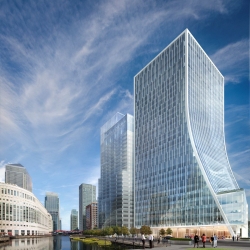January 29, 2020
People ten times more likely to stay in their job for friendships than a pay rise
 Following reports that job applications on the first working Monday of the New Year spiked by 89 percent compared to the average Monday in December, many UK businesses may be missing a trick in their efforts to retain staff, new research has suggested. When researchers commissioned by Eko asked 1,000 employees what factors would make them stay in their job for longer, they were ten times more likely to stay put for friendships than for a pay rise. Indeed, only 3 percent of workers cited a pay rise as something that would make them stay with their employer for longer. (more…)
Following reports that job applications on the first working Monday of the New Year spiked by 89 percent compared to the average Monday in December, many UK businesses may be missing a trick in their efforts to retain staff, new research has suggested. When researchers commissioned by Eko asked 1,000 employees what factors would make them stay in their job for longer, they were ten times more likely to stay put for friendships than for a pay rise. Indeed, only 3 percent of workers cited a pay rise as something that would make them stay with their employer for longer. (more…)







 Getting on well with colleagues gives workers greater job satisfaction than having a good salary, new research has claimed. “
Getting on well with colleagues gives workers greater job satisfaction than having a good salary, new research has claimed. “


 A quarter of employees think challenging issues like workplace bullying and harassment are swept under the carpet in their organisation, a new report from the CIPD, the professional body for HR and people development, claims.
A quarter of employees think challenging issues like workplace bullying and harassment are swept under the carpet in their organisation, a new report from the CIPD, the professional body for HR and people development, claims. 




 Four in ten professionals admit they’re on the brink of
Four in ten professionals admit they’re on the brink of 















January 29, 2020
Don`t believe what you read about wellbeing, except this
by Mark Eltringham • Comment, Wellbeing, Workplace, Workplace design